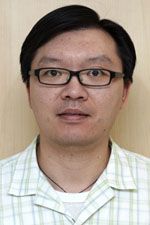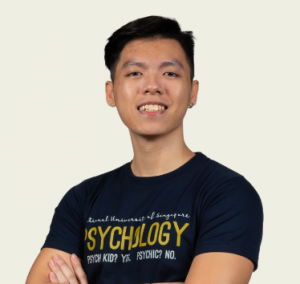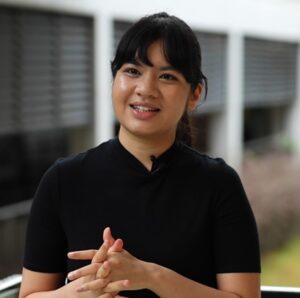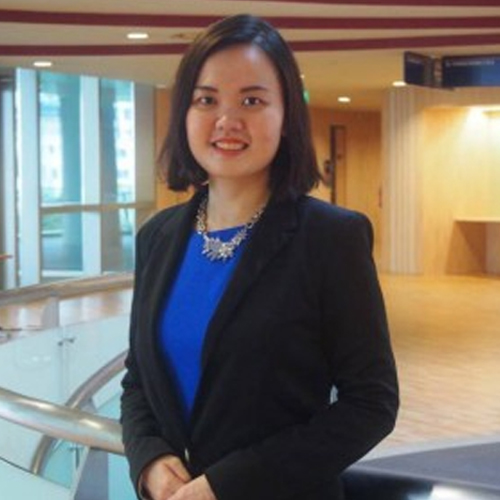Why Psychology?
The NUS psychology programme was first introduced during the 1986-87 academic year and is the oldest psychology programme in Singapore.
Psychology contributes to society by providing behavioural scientists who are equipped with the skills to use empirical research methods to seek an account of human behaviour and experience. Here at the National University of Singapore (NUS), our programme is academically eclectic and produces graduates who are academically the equal in coverage and standards of any from overseas institutions.


Meet our Head of Department
Professor Mike Cheung's research work covers major areas in quantitative methods, including structural equation modeling, meta-analysis and multilevel modeling, and his primary research topic is the integration of meta-analysis and structural equation modeling. A major contributor to the psychology academic and practitioner community, Prof Cheung also serves as an Associate Editor of Research Synthesis Methods and Neuropsychology Review and on the editorial boards of Psychological Bulletin, Health Psychology Review, Methods in Psychology, and Social Science & Medicine.
Curriculum
Single Major [B.Soc.Sci. (Hons)]
Pass at least 60 MCs of PL modules or PL-recognised modules, which include the following:
- PL1101E Introduction to Psychology
- PL2131 Research and Statistical Methods I
- PL2132 Research and Statistical Methods II
- PL3102 Biological Psychology
- PL3103 Cognitive Psychology
- PL3104 Developmental Psychology
- PL3105 Social Psychology
- PL3106 Abnormal Psychology
- PL3231 Independent Research Project OR one of the PL328x lab modules
- A minimum of 4 MCs at levels-2000 or 3000 (excluding the modules above), with a maximum of 1 PL-recognised module. This requirement cannot be fulfilled by reading PL3231 Independent Research Project or additional PL328x lab modules.
- A minimum of 20 MCs at level-4000 or higher, with
- a minimum of 4 MCs from the Capstone group*;
- a minimum of 4 MCs from the Biological, Cognitive and Developmental group*;
- a minimum of 4 MCs from the Abnormal/Clinical, Social and Applied/Others group*;
- a maximum of 4 MCs at level-4000 mapped from exchange;
- a maximum of 4 MCs at level-5000.
Second Major
Pass at least 40 MCs of PL modules or PL-recognised modules, which include the following:
- PL1101E Introduction to Psychology
- PL2131 Research and Statistical Methods I
- PL2132 Research and Statistical Methods II
- PL3102 Biological Psychology
- PL3103 Cognitive Psychology
- PL3104 Developmental Psychology
- PL3105 Social Psychology
- PL3106 Abnormal Psychology
- A minimum of 8 MCs at levels-2000 and 3000 (excluding the modules above), with a maximum of 1 PL-recognised module. This requirement cannot be fulfilled by reading PL3231 Independent Research Project or PL328x lab modules.
Minor
Pass at least 20 MCs of PL modules, which include the following:
- PL1101E Introduction to Psychology
- a minimum of 16 MCs from the following:
- PL2131 Research and Statistical Methods I
- PL3102 Biological Psychology
- PL3103 Cognitive Psychology
- PL3104 Developmental Psychology
- PL3105 Social Psychology
- PL3106 Abnormal Psychology
You may also refer to the Psychology Undergraduate Curriculum chart for more details.
Job Ready
Virtually all employment settings involve interaction with others. As such an understanding of how the mind functions and of interpersonal relationships can be an advantage. Psychology graduates from the Department are employed in a variety of settings where such psychological skills and understanding can be put to good use - often in management /leadership roles.
Those who go on to do Honours in Psychology are sought after in employment settings where their potential as future professional psychologists is of particular interest to employers. Psychologists in Singapore are employed in various settings which include MINDEF, MCYS, MOE, MOH, ITE, SPRING Singapore, a number of voluntary social service organizations, as well as in consultancy firms and research organisations.
Why CHS?
The College of Humanities and Sciences (CHS) is the enhanced undergraduate experience for students of the Faculty of Arts & Social Sciences (FASS) and the Faculty of Science (FOS) at the National University of Singapore.
Scale of Impact
Taps and builds on the research expertise of two of the largest and most established faculties in Singapore.
Deliberate Curriculum Curation
A distinct interdisciplinary approach that emphasises the ability to draw connections, discover links and connect insights across disciplines.
Unparalleled Flexibility
Offers greater choice and unparalleled flexibility to pursue breadth and depth from more than 1,000 modules per academic year.
Testimonials

Tay Shan Ren
Psychology
Why study Psychology?
Studying Psychology allows me to understand the underlying mechanisms governing human behaviours, giving me deeper insights into how people think, feel, and behave in everyday life. It equipped me with tools to make sense of my own experiences and the actions of others, while also allowing me to advocate for mental health, which is increasingly important in today's society.
How has your time in FASS and CHS equipped you with skills for your future career/endeavours?
FASS and CHS has taught me a multitude of soft skills, including communication, critical thinking, and reflection. Working with other people across interdisciplinary courses allowed me to appreciate diverse perspectives and approach problems from multiple viewpoints. Through these experiences, I learned to practise perspective-taking and develop greater empathy when engaging with others. The skills cultivated in FASS and CHS have also equipped me to navigate complex social and professional contexts effectively.
Wong Jin Nen
Psychology '22
What interests you most in your studies?
I think it a fascinating subject where we get to understand people’s behaviour and thoughts on a deeper level. I study Psychology to get to know the people around me better and it allows me to understand why people do the things they do.
What do you intend to do after graduation?
It depends on how things go as I continue studying in FASS. However, I would like to pursue a career in forensic psychology. I think working with SPF would be a good opportunity, otherwise, I would plan to further my studies in this field.


Tasneem Abdul Majeed
Psychology
Why Major in Psychology?
There are small moments in my life that reaffirmed my decision to major in Psychology. My dad is a criminal psychologist and from a young age, he would engage me in conversations about human nature. At the same time, when my brother was diagnosed with autism at the age of three, I was around five and it inspired me to pursue a career in the special education sector as I wanted to build on the strengths and fix the gaps of the current system. I've also grippled with the clinical aspects of psychology as I used to stuggle with high anxiety and panic attacks and I hope to support other youth who are struggling. I am hoping to pursue a career in educational psychology or child abnormal psychology after graduation.

Francesca Phoebe Wah
Planning Officer, Ministry of Education (Singapore) and Founder of BLESS
Psychology and Social Work '14 (BA) and Social Work '18 (MSW)
Francesca Phoebe Wah is a winner of the FASS Student Leadership Award (2014/15), the Singapore Silent Hero Award (2016) and the National Youth Council Singapore Youth Award (2019). She founded Bringing Love to Every Single Soul (BLESS), a non-profit organisation that engages the community in order to better the lives of the less-privileged, in 2014. BLESS started out with 35 undergraduates as volunteer staff, but now includes a larger group of professionals—all working pro bono on community interventions meant to help low-income families and children residing in rental blocks. According to her, BLESS and a number of its programmes were conceived while she was still an undergraduate. "These ideas started off as my undergraduate projects," said Ms Wah, referring to Shining Star Reads, Values in Practice, Be a Giver Social Movement and Small Soul Blessings. Executing these programmes required resources, for which she turned to the very sources she had learnt about in university. "My professors emphasised that there are resources in the community. All we need is someone to mobilise and coordinate them."
Tan Seng Chai
Chief Corporate and People Officer, CapitaLand Group
"It's a new normal we live in, and there are critical attributes the next-generation workforce must possess in order to thrive, including the willingness to learn, ability to innovate, and high adaptability. CapitaLand recognises this and proactively collaborates on opportunities that encourage the development of these traits. That is why we're supportive of the curriculum at NUS College of Humanities and Sciences. Its focus on interdisciplinary education coupled with experiential and problem-based learning will allow future-ready CHS graduates to handle a variety of workplace scenarios across different disciplines better, and put them in good stead to ride the waves of the future of work."

The Faculty of Arts and Social Sciences, National University of Singapore (NUS) is committed to environmental sustainability.
This e-brochure is part of our sustained effort to reduce waste and foster a culture of care for the environment among the NUS and broader community.

